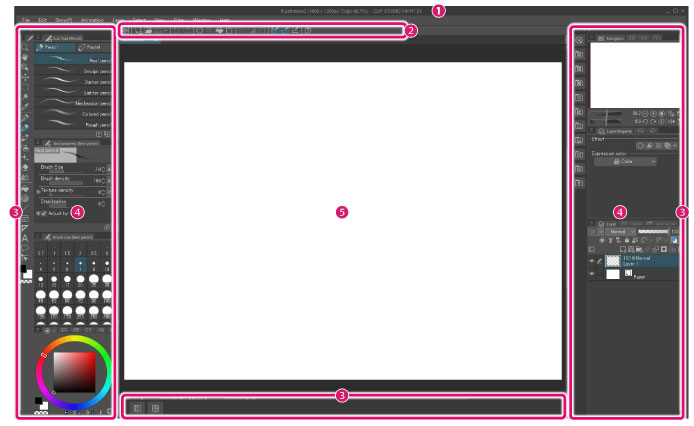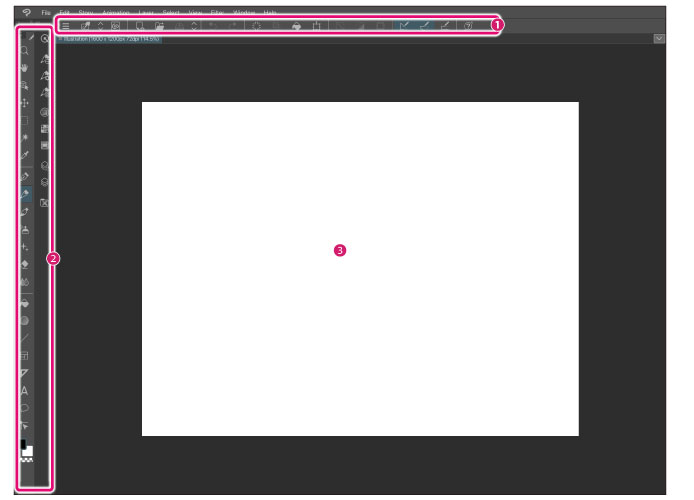Clip Studio Paint Screen Configuration
The Clip Studio Paint main window roughly consists of the following components.
When using Windows/macOS
When using Windows/macOS, the following screen is displayed.

(1) Title bar
Displays the name of the file being edited, size, resolution, scale of the canvas, name of the software, and so on.
(2) Command bar
Allows you to use various functions by clicking the icons. You can customize the icon view by displaying the icon of frequently used functions, for example. For details on how to use, see "Command bar settings [Windows] [PRO/EX]".
(3) Palette dock
Area accommodating multiple palettes. This can be created at the left, right or bottom of the window.
For details on how to use, see "Palette and Palette Dock Operation".
(4) Palette
Screen for configuring settings. There are various types of palettes. In this screen, palettes are accommodated in palette docks. However, they can also be displayed individually as windows or dialog boxes. For details on the palette operation, see "Palette and Palette Dock Operation".
(5) Canvas window
Area for editing images as well as drawing. For details, see "Canvas Window".
When using a Tablet
When using a Tablet, the following screen will be displayed.

(1) Command Bar
Allows you to use various functions by clicking the icons. Customize and register frequently used functions.
To customize, select [CLIP STUDIO PAINT] menu > [Command Bar Settings].
For information on how to configure, see "Command bar settings [Windows] [PRO/EX]".
(2) Palette and Palette Dock
Palette and Palette Dock Area accommodating multiple palettes This can be created at the left, right or bottom of the window.
When using the Tablet, the palette will be display as an icon. Clicking each icon will pop up the corresponding palette.
For information on how to show palettes, see "Toggle display of palette dock".
(3) Canvas window
Area for editing images as well as drawing. For details, see "Canvas Window".









